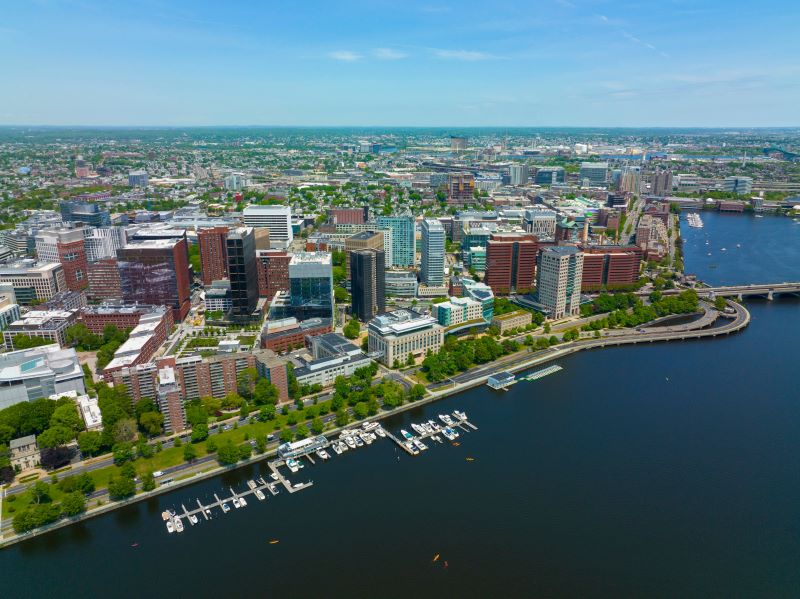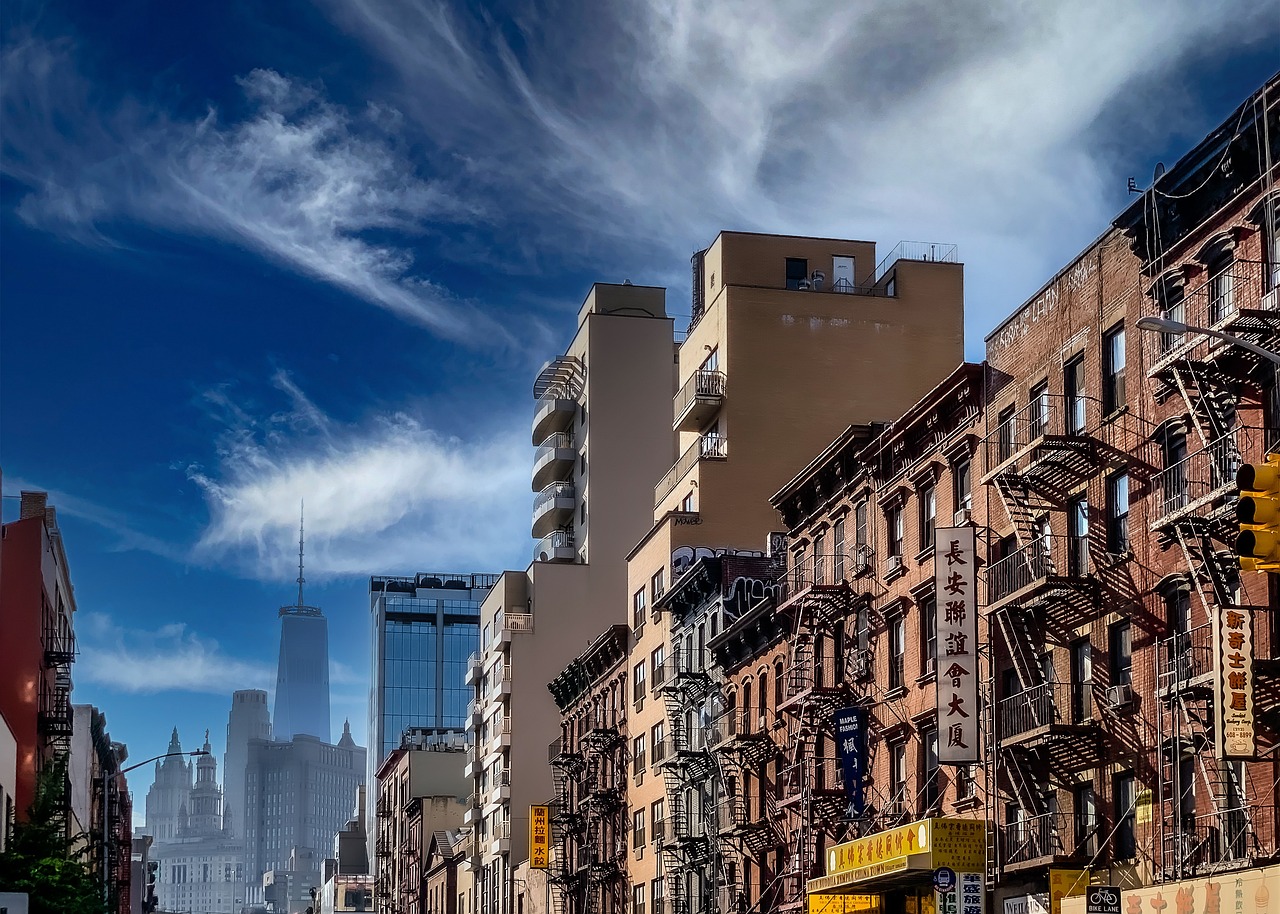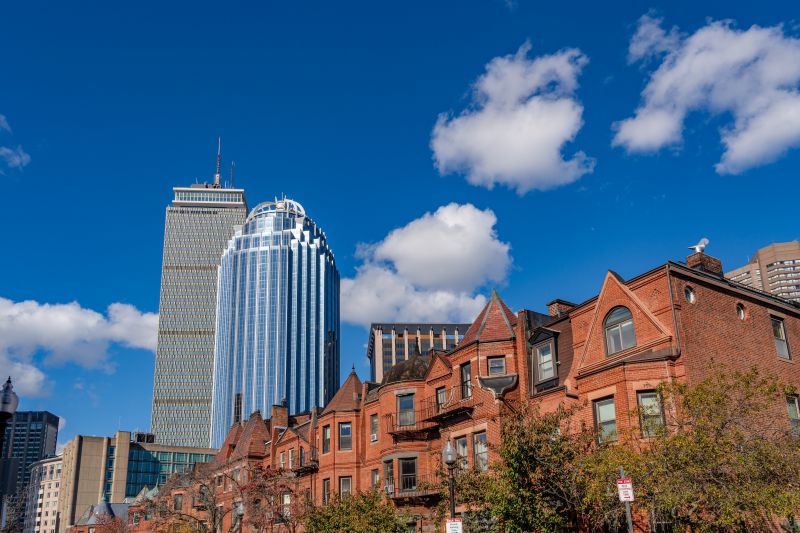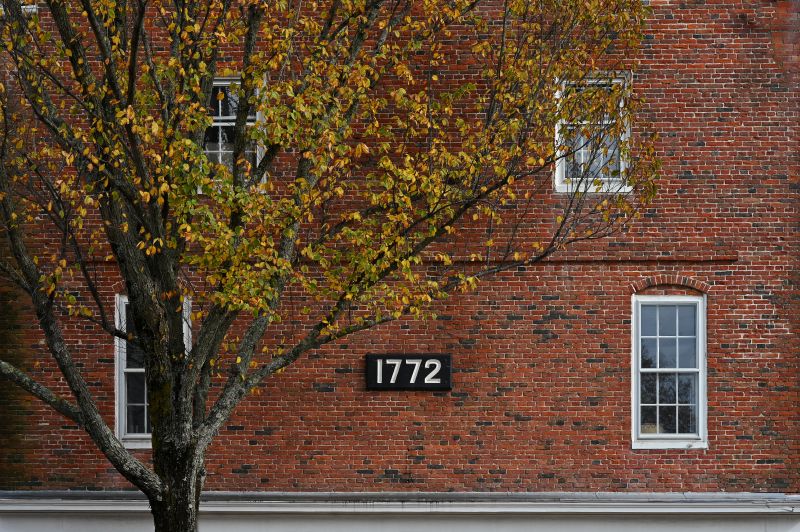
The apartment rental market in Cambridge MA has steadied itself out over the past year. Current rental supply figures are closely tied to the levels from a year ago following a two year period of historically low inventory that followed the pandemic. Cambridge’s rental market appears to have returned to its normal cyclical behavior based on the past few years of data and rental price growth has steadied as a result. These are the trends driving the apartment rental market in Cambridge in 2025.
Cambridge Apartment Inventory
The current real-time availability rate (RTAR) for Cambridge apartments is 3.84%. That figure is up +3.78% compared to last year and +11.63% compared to 2 years ago. Cambridge apartment availability typically peaks in late April or early May, so it’s likely that RTAR will continue to rise over the next few weeks. We don't foresee availability hitting the 5-6% level as it did in the years prior to the pandemic, but still it’s a positive sign that Cambridge’s RTAR is increasing for apartment renters after 4 consecutive years of supply decreases.
The current real-time vacancy rate (RTVR) in Cambridge is 1.00%. Vacancies are up +7.53% year-over-year and up +150.00% compared to late March 2023, when apartment inventory was at its lowest point on record. In September of last year, RTVR peaked at 2.4% after spending 3 years at or below the 1% level. This is a sign that normal seasonal market conditions have returned in Cambridge and the rental supply shortage is easing.
Even though it looks like we’re heading out of the supply shortage, demand remains strong in Cambridge, one of metro Boston’s most sought after neighborhoods. Based on our most recent Cambridge rental market data, the median days on market for an apartment is 17 days. That’s a full week less than the median days on market for Boston apartments, which is currently 24. Despite the high demand for apartments in Cambridge, rent prices have flattened out and are on a much more sustainable growth trajectory.
Average Rent Prices in Cambridge MA
The current average rent price for apartments in Cambridge is $3,482, which is $166 higher than the average rent price in the City of Boston ($3,316). The average rent price in Cambridge is up +1.28% year-over-year and up +6.68% over a 2 year span. So as rental supply has increased, rent prices have flattened to a healthy +1-2% year-over-year, which we expect to continue in 2025.
Prices for 5 bedroom apartments in Cambridge have grown the most over the last year, increasing by +4.17% compared to last March. Prices for 4 bedroom apartments actually dropped by a small margin (-1.49%) year-over-year in Cambridge. Prices for studios, 1 bedrooms, 2 bedrooms, and 3 bedrooms all rose by +0.62%, +3.83%, +1.70%, and +3.60% respectively.
Cambridge Apartment Rental Market Forecast 2025
Looking ahead to the next year, the apartment rental market in Cambridge looks to be in a better place for renters than compared to the post pandemic times when sparse amounts new development of units occurred. Seasonal trends have returned and supply shortages have eased a bit, which will lead to more sustainable market growth moving forward. The recent ruling to eliminate single-family zoning in Cambridge will also pave the way for more inventory to be added, which will help offset rising demand. High affordability requirements in development deals will still slow production but if interest rates come down developers will be better able to offset the losses they take on affordable units.
Combine that with the new administration leading the way in D.C. with more supply side economic theory- energy and construction material prices should drop. As inflation wanes through a cohesive national domestic energy policy we could see a resurgence in new construction development in Cambridge and all over the metro Boston area. With lower energy costs, reduced inflation, and lower interest rates, developers may finally see a path to invest in new construction projects in Cambridge and beyond. To be clear – 2026 should see better development and projects move forward as developer re-pencil their overall construction costs with lower price points as energy costs tumble which should create a decrease in pricing on all things construction related. This should help address several key issues the area has faced since the pandemic, which is declining new housing stock and historic shortages. We will continue to cover these stories right here on Boston Pads.

Demetrios Salpoglou
Published March 25, 2025
Demetrios has pulled together the largest apartment leasing team in the Greater Boston Area and is responsible for procuring more apartment rentals than anyone in New England – with over 130k people finding their housing through his services. Demetrios is an avid real estate developer, peak performance trainer, educator, guest lecturer and motivational speaker.










